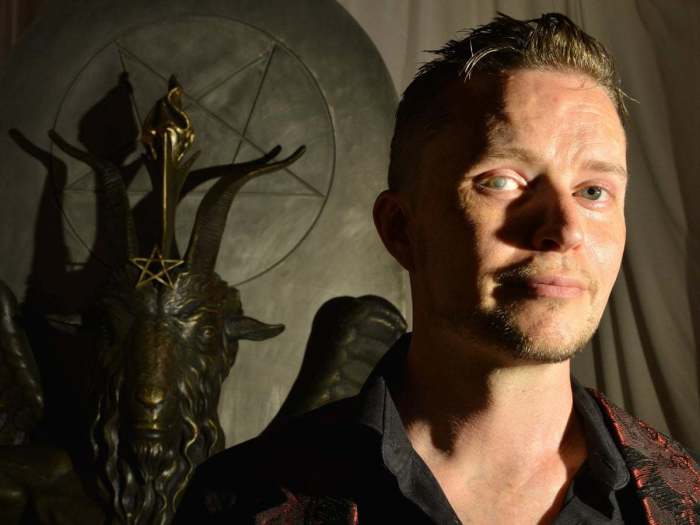Satanic Temple lawsuit claiming Texas abortion laws violate religious freedom dismissed

The Satanic Temple's lawsuit against pro-life laws in Texas has been dismissed by a federal judge, calling the group's complaint "spare and unusually cryptic."
Judge Charles Eskridge of the Southern District Court of Texas ruled earlier this month that the plaintiffs — TST and an anonymous member identified as Ann Doe — did not have factual evidence to support claims that the state's abortion restrictions infringe on their freedom of religion under the First Amendment.
Cecile Young, Executive Commissioner of the Texas Health and Human Services Commission, is listed as a defendant in the case. However, the Trump appointee argued that it's not clear what wrong she allegedly committed.
"The third amended complaint is willfully inadequate and deficient," Eskridge wrote in his ruling. "It fails for jurisdictional reasons and would also likely fail for insufficient pleading of the merits. Plaintiffs will not be given leave to replead."
In a Monday statement to The Christian Post, TST co-founder and spokesperson Lucien Greaves said that the judge's ruling was a "total abdication of his duties as a neutral adjudicator of Law."
"Essentially, Judge Eskridge ruled that because he doesn't understand our ritual, he refuses to approach the question of our right to perform it," Greaves stated.
"While some anti-abortion Christians might celebrate this, other Christians with higher concern for religious liberty should see this for what it is: a horrible precedent that opens the door for judges to insist that their perceptions of doctrinal legibility, and their own subjective evaluations of the importance of a religious practice, are of primary importance in determining the rights of a religious group to engage in that practice."
The group has filed an appeal, and Greaves is confident that "a higher court will see the judge's flagrant incompetence for what it is."
TST originally filed a suit in February 2021, amending the first complaint later that month. The group obtained leave to file a second complaint in May 2021 and a third complaint following the reversal of Roe v. Wade last summer.
The most recent complaint alleged that TST sent a letter to Young on behalf of one of its congregants, seeking an exception to the state's abortion ban. TST later sued the Health and Human Services commissioner.
In his ruling, the judge acknowledged that TST claims that it's a religion but wrote that the group did not thoroughly explain its belief structure and how Texas' laws interfere with the religion. As Eskride noted in his decision, TST stated that it follows the "Seven Tenets," which permits abortions and that its congregants engage in "ritual abortions."
TST accused Young and Texas legislators of interfering with the "ritual" by enforcing statutes from another religion, preventing congregants from engaging in the practice after Young enforced the statutes.
"The supposed 'religious statutes' aren't specified or explained in any way. Neither are 'the Seven Tenets' or 'the ritual,'" Eskridge wrote. "And no congregant is mentioned by name or description, including Ann Doe."
The judge argued in his ruling that TST's complaint did not show how the "unspecified religious statute" is directed at the group, nor does it prove how the group has been prevented from engaging in a specific sort of action.
"Instead, it asserts only that 'the congregants tried to engage in the ritual' but were 'unsuccessful,'" Eskridge wrote. "This serves only to focus inquiry on the circumstances of individual members."
"The motion by Defendant Cecile Young to dismiss is GRANTED," the judge concluded. "This civil action is DISMISSED WITHOUT PREJUDICE. A final judgment will enter separately."
The case is not the first time that TST has argued that abortion bans violate religious freedom.
As CP reported in February, TST made a similar claim when it announced its plans to operate a telehealth abortion clinic in New Mexico. The group declared in a statement that its online clinic would protect the "bodily autonomy" of its members.
"TST Health's first telehealth clinic will provide medication for safe abortions through the mail for members and for those who wish to perform TST's Abortion Ritual," the statement read. "The goal of this first clinic is to allow our members to have access to safe and legal abortions, no matter where they live or what their financial situation may be."
TST affirmed its objection to what it views as the government interfering with abortion access, promising to contest laws that it believes "impede" its faith in bodily autonomy and the ability to perform its "Religious Abortion Ritual violate the First Amendment and the Religious Freedom Restoration Act."
Samantha Kamman is a reporter for The Christian Post. She can be reached at: [email protected]. Follow her on Twitter: @Samantha_Kamman




























